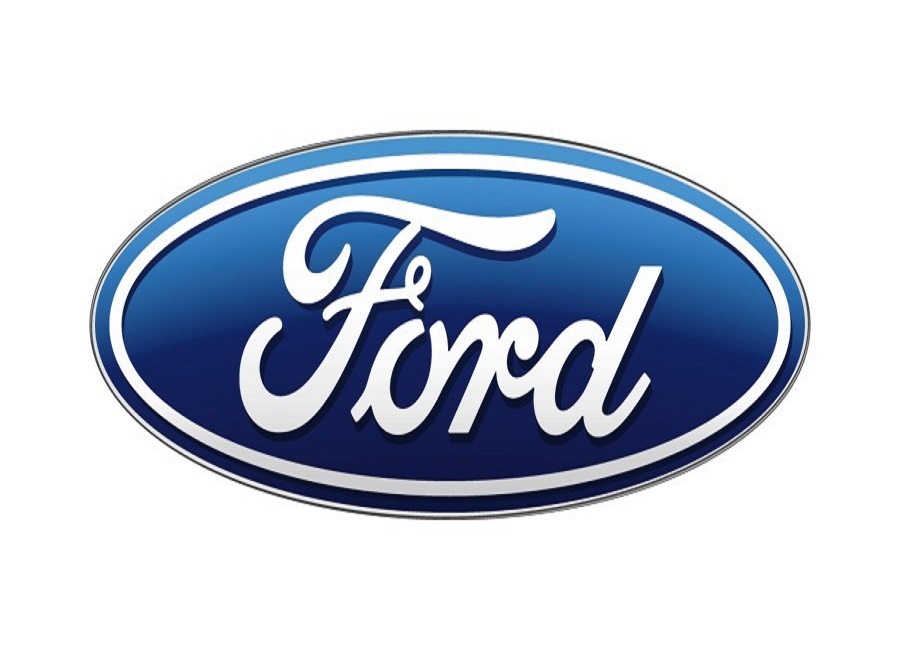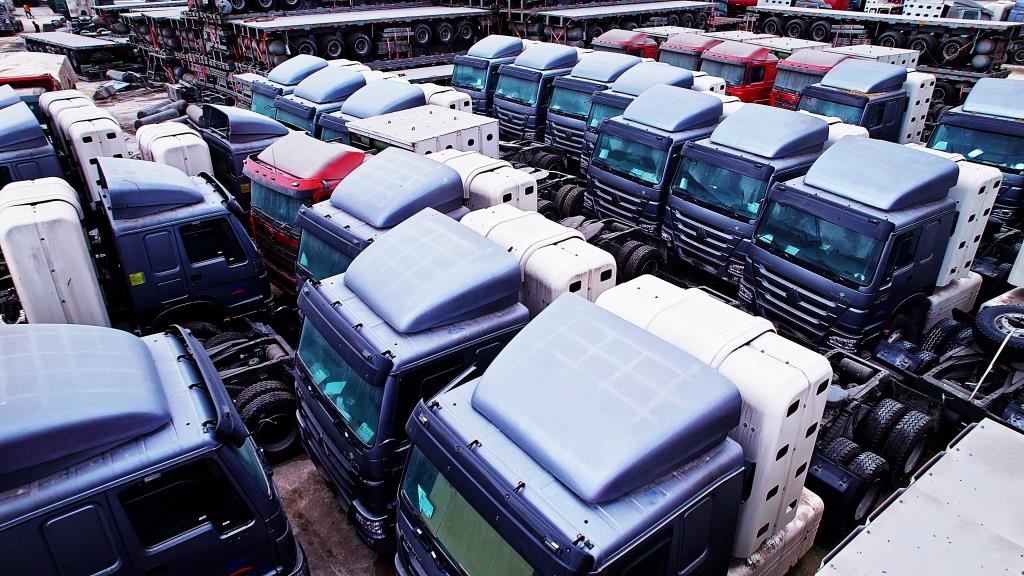Auto
Ford Motor Invests $1.05bn in South Africa

By Adedapo Adesanya
The South African auto industry has received a big boost with the investment of $1.05 billion by Ford Motor Company to upgrade its factory located in Silverton, near Pretoria.
The fund would be used to increase the automaker’s annual capacity by almost 20 per cent to 200,000 units and create about 1,200 direct jobs.
In a statement on Tuesday, the American auto giant described this investment as the “biggest” in its 97-year history in South Africa and “one of the largest ever in the local automotive industry.”
According to the operations director of Ford’s International Market Group, Mr Andrea Cavallaro, the outlay will support the production of a new Ranger pickup truck starting in 2022, both for domestic sales and exports.
The move comes after Ford announced in January that it is ceasing production in Brazil after a century of building cars there, closing three factories and cutting 5,000 workers.
The US-based company also eliminated thousands of positions in Europe as part of a sweeping $11 billion global reorganisation and culled about 1,400 salaried employees in the US in 2020.
Ford’s fresh investment and jobs will come as a welcome boost to South Africa, where almost a third of the workforce is unemployed.
The country has been hit hard by the coronavirus pandemic, with lockdowns and a resurgence of infections weighing on activity, and 2020 economic output probably contracted the most in at least nine decades.
Production at the Silverton plant, which also makes the Everest SUV, will include VW pickups as part of a strategic alliance between the carmakers.
The partnership agreement was signed in June, almost two years after it was first announced, and was eventually expanded to include electric and self-driving cars.
Ford also aims to make the Silverton plant entirely energy self-sufficient and carbon neutral by 2024, Mr Cavallaro said.
The moves will help keep the plant operating in the event of one of South Africa’s frequent power outages.
Auto
Heirs to Introduce Low-Cost Motor Insurance

By Modupe Gbadeyanka
There are plans by Heirs Insurance to introduce insurance products tailored for vehicle owners, a statement from the underwriting firm has disclosed.
According to the subsidiary of Heirs Holdings, this low-cost motor insurance package known as the Flexi Comprehensive Motor Insurance Plan will provide the benefit of a comprehensive motor insurance plan for a fraction of the cost, addressing the financial realities many Nigerians face.
The underwriting company announced the plan to introduce this package as it launched a new campaign designed to reward its customers.
This initiative themed Unwrapping Smiles will bring hope to individuals, families, and communities this holiday season, and will run from December 10 to December 31, 2024.
It will feature community-focused outreaches, including Christmas gifts and exciting rewards to put smiles on the faces of Nigerians. It will also include the launch of a holiday-watch web film known as The Underwriters for all Nigerians to enjoy.
“At Heirs Insurance Group, we are committed to providing much more than insurance. In a season when many Nigerians seek hope and reasons to smile, we are proud to offer initiatives that inspire and uplift,” the Chief Marketing Officer of Heirs Insurance, Ms Ifesinachi Okpagu, said.
Auto
FG Claims Investments in Presidential CNG Initiative Now $450m

By Adedapo Adesanya
Nigeria’s Presidential Compressed Natural Gas Initiative (PCNGi) claims that investments in championing the CNG value chain have hit $450 million.
This was disclosed by Mr Michael Oluwagbemi, Project Director and Chief Executive Officer (CEO), PCNGi, during the 9th Edition of the Nigeria Energy Forum (NEF2024) Day 2, Virtual Event themed Energising Sustainable Industrialisation.
According to the PCNGi CEO, the amount goes into things like mother stations, daughter stations and refuelling stations as well as conversion centres which are starting to spring up across the nation.
Mr Oluwagbemi, represented by Mr Tosin Coker, the Head of Commercial, PCNGi, said the initiative had successfully converted more than 10,000 vehicles from petrol to CNG.
“By 2027, the initiative will have converted more than one million vehicles using petrol to CNG,” he said.
On incidents of explosion of vehicles using CNG, the CEO assured Nigerians that it had taken precautionary measures with different agencies of government to ensure safety.
Mrs Ibironke Olubamise, National Coordinator of the GEF Small Grants Programme (SGP), managed by UNDP, said the SGP was investing in youth energy innovation for economic growth and environmental sustainability.
Mr Daniel Adeuyi, NEF Group Chairman, said, “The event featured three super sessions on Energising Industrial Revolution, Community Climate Action by GEF-SGP UNDP and Clean Energy Innovations.
“The sessions are to share lessons learnt from real-life projects and build capacity of young entrepreneurs and cross-industry professionals.”
Mr Joseph Osanipin, the Director General of the National Automotive Design and Development Council (NADDC), said that the council had trained more than 4,000 auto technicians on how to convert petrol vehicles to CNG.
He said the council had started campaigns to sensitise Nigerians on the advantages of using CNG to power their vehicles.
“CNG can guarantee a cleaner environment, it is cheaper and affordable,” he said.
Mr Oluwatobi Ajayi, the Chairman and Managing Director of Nord Automobile Ltd., said the company was established to tackle the growing demand for vehicles in Africa and reduce import dependency.
He said that because of the Federal Government’s CNG initiative, the company had incorporated it into their vehicle production to meet up with the government policy.
Mr Armstrong Tankan, the Managing Director and Chief Executive Officer, Ministry of Finance Incorporated (MOFI), said that MOFI was set up in 1959 as the statutory vehicle to hold all the assets owned by the federal government.
“Today, we’ve been able to identify the assets the federal government owns and we are trying to track them.
‘We actually do have assets, not just locally but globally as well and we must establish visibility over what the federal government owns before we can start talking about managing them.
“So, we want to try to minimise the waste, minimise the overlaps and help to improve output,” he said.
Auto
Dangote Becomes Largest Operator of CNG Trucks With $280m Investment

By Aduragbemi Omiyale
Over $280 million has been invested by Dangote Cement Plc in compressed natural gas (CNG) technology and infrastructure to enhance energy efficiency and drive economic growth in Nigeria.
The cement maker turned to CNG in demonstration of its support for President Bola Tinubu’s drive for cheaper and cleaner fuelling alternatives for all Nigerians.
At a recent event, the President emphasised the urgent need for Nigeria to utilise its vast natural gas resources in the transportation sector.
He stated that CNG transportation is an economic necessity for Nigeria, signalling a significant shift in the country’s approach to public transportation and energy use.
This has spurred Dangote Cement to adopt CNG, reflecting its dedication to mitigating climate change and supporting a transition to a low-carbon economy, making it the largest operator of CNG trucks in the country.
The chief executive of Dangote Group, Mr Aliko Dangote, said his company’s investments in CNG are also in line with Nigeria’s Nationally Determined Contribution (NDC) under the Paris Agreement, which aims for net-zero emissions by 2060.
“In this pursuit of transition to clean energy, we are optimistic of a remarkable accomplishment by President Tinubu, as he has taken the lead in the nation’s drive towards energy efficiency. This presupposes private sector intervention to support this noble idea initiated by the President,” he stated.
The businessman noted that the firm’s early adoption of CNG has made it the largest operator of CNG trucks in Nigeria, emphasising that the initiative is a boost to Mr Tinubu’s quest towards enhancing the nation’s energy independence and contributing to a more secure energy future.
“We are now using CNG vehicles, especially with the new policy of the federal government, launched under the Renewed Hope Agenda by President Tinubu. We are committed to a cleaner and greener future,” Mr Dangote said.
On his part, the chief executive of Dangote Cement, Mr Arvind Pathak, said the cement miller aims to acquire 100 per cent CNG trucks as part of a long-term plan to transition its entire fleet to CNG.
He disclosed that the CNG infrastructure investments have positively influenced Nigeria’s transition to cleaner fuels, adding that the CNG station at Obajana, capable of refuelling over 3,000 trucks, exemplifies this commitment, with a second station currently under development in Ibese to support fleet operations further.
“By mid-2026, Dangote Cement aims to operate a fleet predominantly powered by CNG. To facilitate this transformation, we are investing in expanding our CNG fuelling infrastructure, ensuring that our growing fleet has reliable access to CNG as our fuel,” Mr Pathak said.
He added that plans are afoot to aggressively pursue this timeline of deployment, beginning from the first quarter of 2025, saying, “We are keeping our eyes on the ball to ensure that we do not miss our target dates of full compliance.”
-

 Feature/OPED5 years ago
Feature/OPED5 years agoDavos was Different this year
-
Travel/Tourism8 years ago
Lagos Seals Western Lodge Hotel In Ikorodu
-

 Showbiz2 years ago
Showbiz2 years agoEstranged Lover Releases Videos of Empress Njamah Bathing
-

 Banking6 years ago
Banking6 years agoSort Codes of GTBank Branches in Nigeria
-

 Economy2 years ago
Economy2 years agoSubsidy Removal: CNG at N130 Per Litre Cheaper Than Petrol—IPMAN
-

 Banking2 years ago
Banking2 years agoFirst Bank Announces Planned Downtime
-

 Sports2 years ago
Sports2 years agoHighest Paid Nigerian Footballer – How Much Do Nigerian Footballers Earn
-

 Technology4 years ago
Technology4 years agoHow To Link Your MTN, Airtel, Glo, 9mobile Lines to NIN














